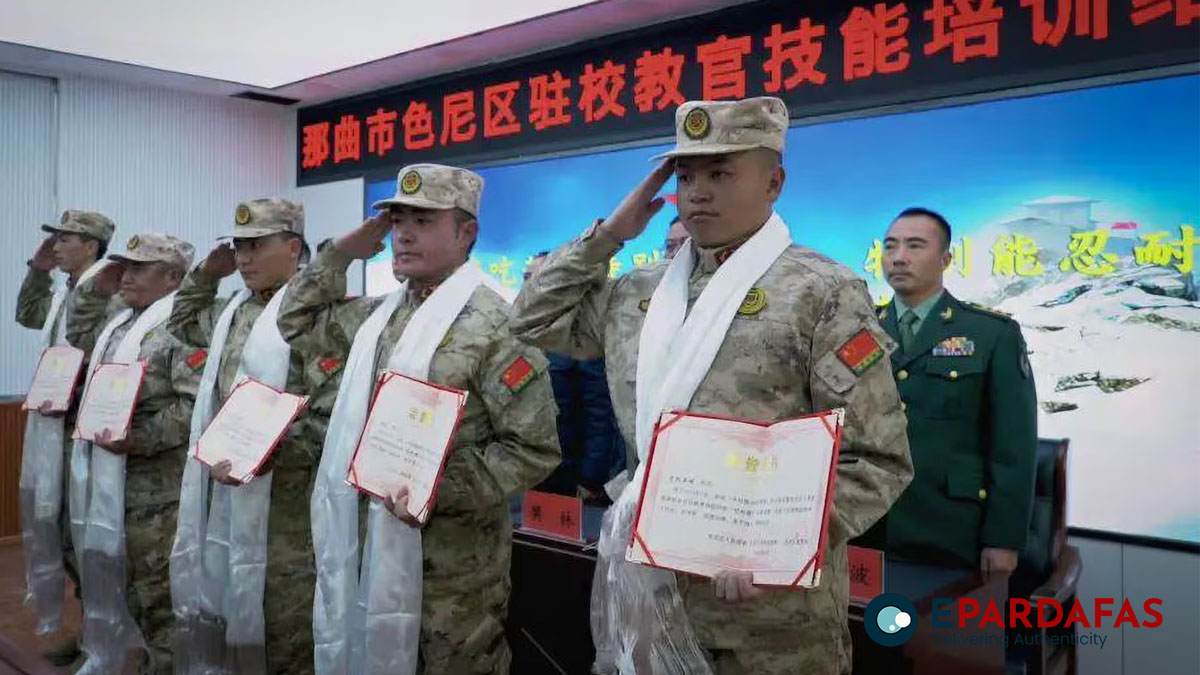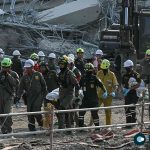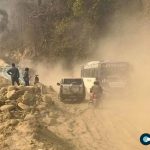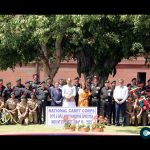
China Deploys Military Veterans in Tibetan Schools for Political Indoctrination and Military Training

China is stationing retired military personnel in schools across Tibet as part of a new initiative to provide military and political training to Tibetan children as young as six, according to reports from inside the region and state-run media coverage.
The move, authorities say, aims to promote “patriotic education” and prepare students for future military service. However, rights groups and experts view the initiative as part of Beijing’s ongoing efforts to enforce cultural assimilation and erode Tibetan identity.
Chinese army veterans—now referred to as “on-campus instructors”—have been deployed to schools in multiple locations, including Lhasa, Chamdo, Nagchu (in the Tibet Autonomous Region), Ngaba and Kyungchu (Sichuan province), Sangchu (Gansu province), and several counties in Qinghai.
State television footage shows Tibetan students marching in military fatigues, raising the Chinese national flag, responding to military-style commands, and participating in air raid drills. Instructors inspect dormitories and enforce military conduct, even during non-school hours, sources told Radio Free Asia (RFA).
The veterans are tasked with reshaping children’s values, instilling loyalty to the Chinese Communist Party (CCP), and promoting the “correct political ideology” through direct classroom instruction and informal dormitory visits, the sources said.
In one case, 13 retired Han Chinese military veterans were assigned to seven schools in Nagchu’s Sernye District to provide daily instruction and discipline. State media praised this initiative as a way to “root national defense education in childhood,” framing it as a “win-win” model of veteran reintegration and youth political development.
“Now, they’re not just removing Tibetan from textbooks,” one anonymous source told RFA. “They’re embedding political indoctrination in everyday school life—changing the way Tibetan children think, behave, and relate to their cultural identity.”
Experts point to this as part of a broader push under China’s amended National Defense Education Law, which took effect in September 2024. The law mandates the placement of People’s Liberation Army (PLA) personnel in schools and universities to implement state-approved ideological and physical training.
“This is a calculated step toward the Sinicization of Tibetans,” said Frank Lehberger, a senior fellow at India’s Usanas Foundation. “The CCP is using national defense education as a tool for militarization and ideological transformation.”
Historically, Tibetan students have been required to participate in short-term military training. However, the deployment of veterans as full-time school instructors marks an unprecedented deepening of the CCP’s influence over Tibetan youth.
The “on-campus instructors” take on roles such as behavior monitors, political lecturers, and cultural reformers. Activities include flag-raising ceremonies, military song recitals before meals, and storytelling sessions glorifying PLA soldiers and the Chinese nation.
Analysts link this move with the Chinese government’s 2025 Work Report, in which Premier Li Qiang outlined plans to reform political education “from elementary to university level.” The new system was first piloted in Nagchu’s Sernye District, promoted as an “innovative integration” of veterans’ management and school education.
According to Anushka Saxena of the Takshashila Institution in India, the PLA sees Tibetan schools as key sites for ideological reinforcement due to the strategic importance of the region.
“Tibetans are physically adapted to high altitudes, making them valuable for military roles in mountainous terrain,” Saxena said. “The PLA aims to cultivate loyalty early to harness this potential.”
The program comes amid reports of increased suppression of Tibetan cultural and religious education. In Sichuan’s Ngaba and Dzoge counties, two monastic schools were closed in mid-2024, displacing 1,600 students into state-run boarding schools.
“These efforts extend beyond classrooms,” said a second source inside Tibet. “Military veterans enter dormitories, enforce Han Chinese norms, and work to erase traditional values passed down from families.”
Tsewang Dorji of the Tibet Policy Institute echoed this concern, noting how Tibetan teachers have voiced distress over revised school curricula filled with propaganda and PLA hero worship.
Despite the criticism, Chinese media celebrated the pilot program’s results, reporting that more than 300 Tibetan students have already signed up as “future military service volunteers.”
- Phewa Festival Begins in Pokhara to Celebrate Nepali New Year
- India Agrees to Recognize Nepal’s Certificate of Origin in Boost to Bilateral Trade Facilitation
- Nepal Oil Corporation Posts Rs 9.55 Billion Profit in FY 2024/25
- KMC Deploys Mobile Food Testing Lab to Inspect Over Two Dozen Food Items in Kathmandu












Comments